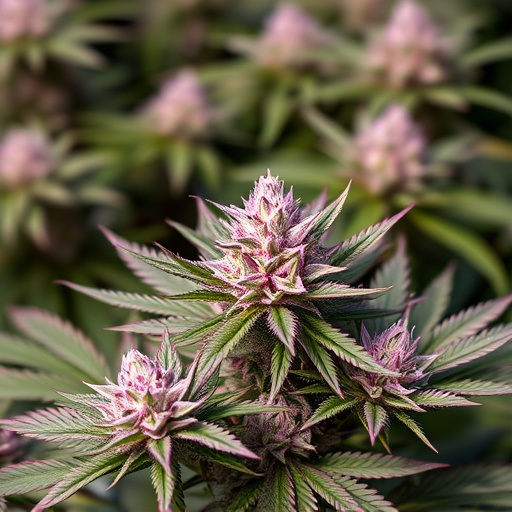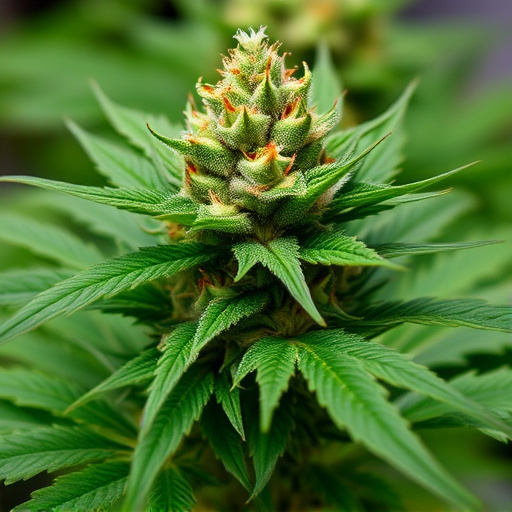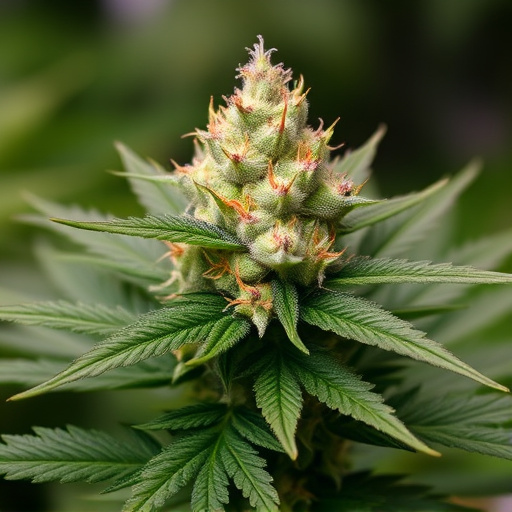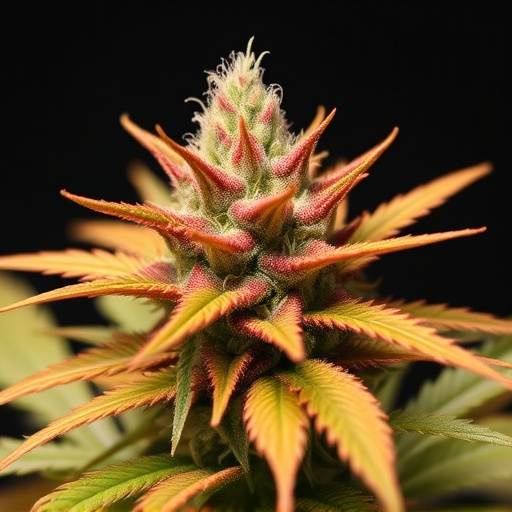Regular consumption of potent best hybrid cannabis strains, high in THC, can increase risk factors for anxiety, depression, and cognitive impairments. Smoking cannabis damages lungs, leading to inflammation, reduced capacity, and respiratory issues like chronic bronchitis or COPD. THC interference with neural pathways may cause memory loss and affect concentration, problem-solving, and long-term memory retention. For individuals with mental health concerns, consulting a healthcare professional is crucial to manage conditions and adverse effects from cannabis use.
“While many celebrate the potential benefits of weed, it’s crucial to understand its side effects, especially long-term use. This article delves into the hidden impacts, focusing on mental health, physical well-being, and cognitive function. We explore how regular consumption, particularly with popular best hybrid cannabis strains, can influence anxiety, depression, lung health, and memory. Understanding these potential risks is essential for making informed decisions regarding weed use.”
- Potential Mental Health Impacts: Anxiety and Depression
- Physical Side Effects on the Body and Lungs
- Long-term Use and Its Influence on Memory and Cognitive Function
Potential Mental Health Impacts: Anxiety and Depression
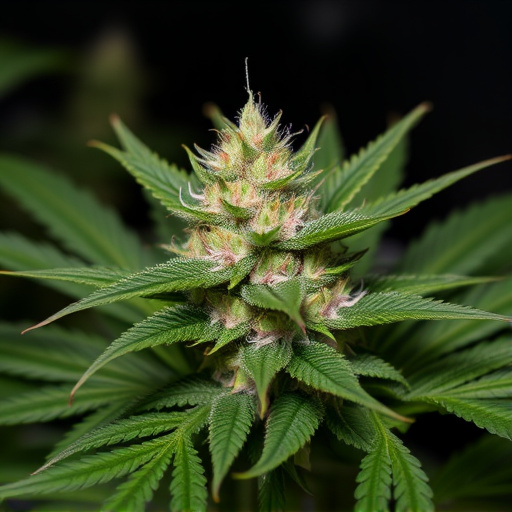
While many people enjoy recreational or medicinal use of cannabis, it’s crucial to be aware of potential mental health impacts, particularly anxiety and depression. Studies have shown that regular consumption of marijuana, especially potent hybrid strains like those known for their high THC content, can increase risk factors for developing or exacerbating these conditions. The connection is thought to be linked to the way THC interacts with the endocannabinoid system in our brains, influencing mood, memory, and perception.
Individuals who already struggle with anxiety or depressive disorders may find that smoking weed worsens their symptoms. It’s essential to consult a healthcare professional if you’re using cannabis for medicinal purposes and are experiencing mental health concerns. They can offer guidance on safe use practices, recommend alternative treatments, or help manage both the condition and any adverse effects from marijuana consumption.
Physical Side Effects on the Body and Lungs
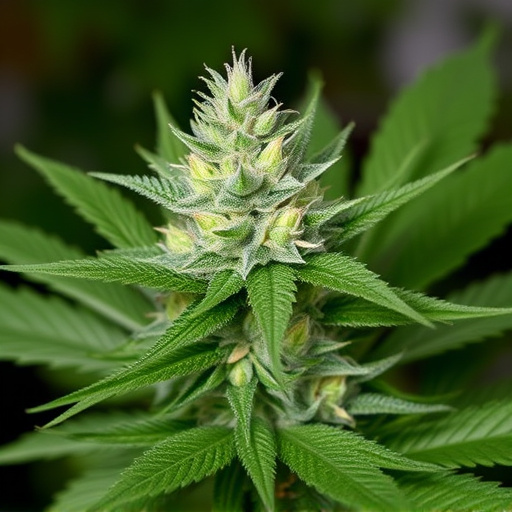
Smoking weed, or cannabis, can have noticeable physical side effects on the body and lungs. While the use of certain strains like some of the best hybrid cannabis strains is often associated with recreational pleasure and potential medical benefits, prolonged exposure to smoke can lead to respiratory issues. The act of inhaling smoke irritates the airways and alveoli in the lungs, causing inflammation and reduced lung capacity over time. This can result in coughing, wheezing, and difficulty breathing, especially for individuals who are already prone to respiratory conditions like asthma.
Regular cannabis users may experience chronic bronchitis or even chronic obstructive pulmonary disease (COPD), which is a significant concern. The smoke contains tar, a sticky substance that lines the airways and can lead to persistent coughing and production of phlegm. Moreover, some best hybrid cannabis strains with higher THC content can induce anxiety and panic attacks in sensitive individuals, as THC can have an immediate effect on the respiratory system, leading to rapid breathing and increased heart rate.
Long-term Use and Its Influence on Memory and Cognitive Function
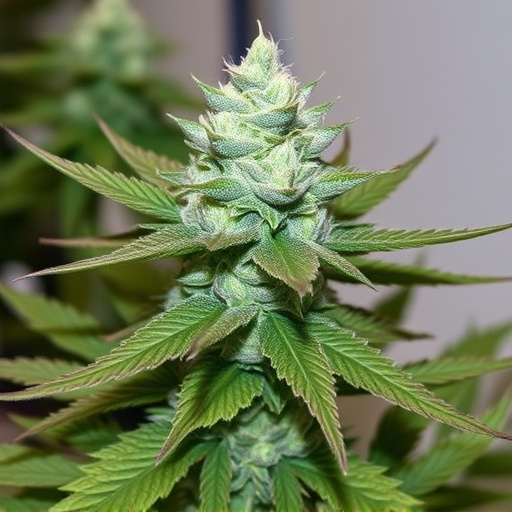
Long-term use of cannabis, especially with potent best hybrid cannabis strains, has been linked to potential adverse effects on memory and cognitive functions. While occasional use may not show significant impacts, regular and heavy consumption can lead to challenges in areas like concentration, problem-solving abilities, and even long-term memory retention. Studies have indicated that the active compounds in cannabis, particularly THC, can interfere with neural pathways responsible for learning and memory, affecting how information is processed and stored in the brain.
The influence of chronic cannabis use on cognitive health is a complex issue. Some users report enhanced creativity and improved mood, but these benefits may come at a cost. As time goes on, sustained exposure to THC can disrupt the balance of neurotransmitters in the brain, potentially contributing to issues like anxiety, depression, and even psychosis in vulnerable individuals. Moreover, memory impairment associated with long-term use could impact daily functioning and quality of life, highlighting the importance of understanding the potential risks, especially for young adults whose brains are still developing.
While some advocate for the potential benefits of certain best hybrid cannabis strains, it’s crucial to weigh these against the known side effects. The article has explored how regular marijuana use can impact mental health, with links to increased anxiety and depression, as well as significant physical consequences on the body and lungs. Long-term use also poses risks to memory and cognitive function. Given these considerations, conscious decision-making about cannabis consumption is essential for maintaining overall well-being.




